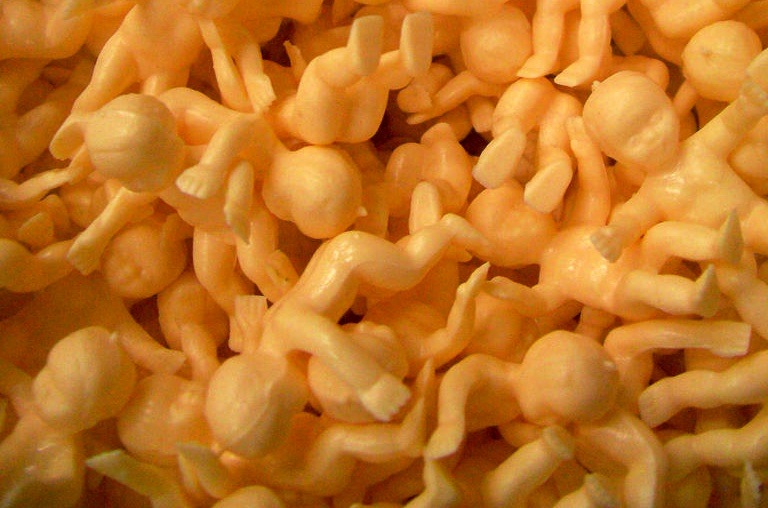Well, the 7 billionth baby is expected to arrive around Halloween. Spooky! Here's what you should read to prepare.
"I am the population problem." It's easy to blame developing countries, but if you want to find the source of the population problem, check the mirror.
Population isn't just about counting heads. The impact of humanity on the environment is not determined solely by how many of us are around, but by how much stuff we use and how much room we take up. And as a financially comfortable American, I use a lot of stuff and take up a lot of room.
… When a poor woman in Uganda has another child — too often because she lacks access to family-planning services, economic opportunity, or self-determination — she might dampen her family's prospects for climbing out of poverty or add to her community's challenges in providing everyone with clean water and safe food, but she certainly isn't placing a big burden on the global environment.
When someone like me has a child — watch out, world!
"We can feed 10 billion of us, study finds — but it won’t be easy." What can we do to make feeding a growing population sustainable?
Based on new data about the Earth's agricultural lands and crop yields, the study offers some core strategies to meet future food production needs and environmental challenges. Those strategies include:
- Stop farming in places like tropical rainforests, which have high ecological value and low food output;
- Improve crop yields in regions of Africa, Latin America, and Eastern Europe where farmland isn't meeting its potential;
- Change farming practices to better manage water, nutrients, and chemicals;
- Shift diets away from meat; and
- Stop wasting food (up to one-third of all food grown is wasted either in production, transport, or after purchase).
"7 billion unpacked — a comic." For those of you who like pictures, it's the graphic novel version!
"What's your baby's carbon footprint?" A look at what number 7 billion is going to do to the environment. Yikes.
Over his/her lifetime, each American born in the 1990s will produce an average of:
3.1 million pounds of CO2 (same as 413 plane trips from New York to Tokyo)
22,828,508 pounds of water waste (the equivalent of 48,060 10-minute showers)
16,372 pounds of yard waste (enough to fill 442 large garbage cans)
7,249 pounds of food waste (as much as 16 households produce in a year)
S/he will eat 1,654 chickens, 74 turkeys, 25 pigs, 11 cows, two sheep, and 18,675 eggs.
And s/he will use 1,870 barrels of petroleum (enough to fuel a Subaru Outback for 822,800 miles).



